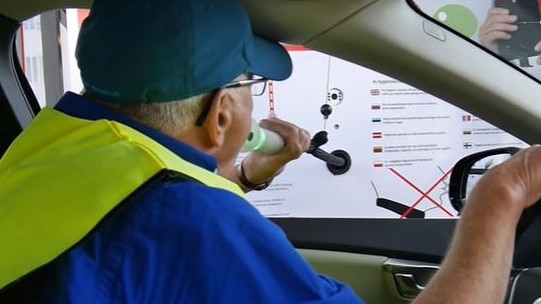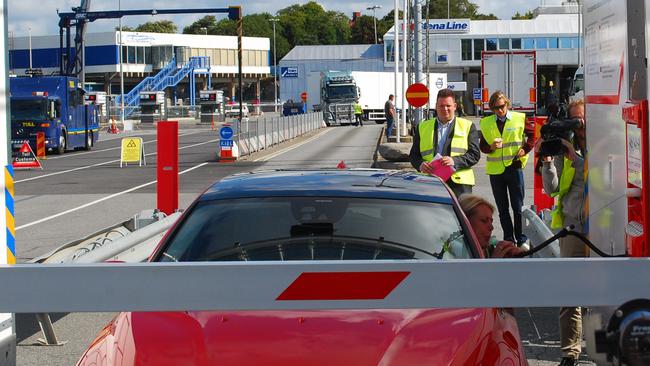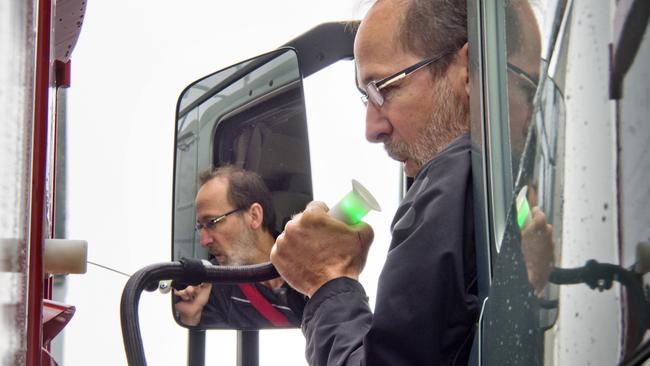Swedish-style ‘alco-gate’ to be trialled at Melbourne carpark in 2019
A hi-tech boom gate that prevents drink-drivers from leaving carparks is to be installed at a licensed premises in southern Melbourne within months — this is how it will work.
VIC News
Don't miss out on the headlines from VIC News. Followed categories will be added to My News.
A hi-tech boom gate that prevents drink-drivers from leaving carparks is to be installed at a licensed premises in southern Melbourne within months.
The Herald Sun can reveal the Transport Accident Commission has struck a deal to install Victoria’s first “alco-gate”, at a location that is a closely guarded secret.
The six- to nine-month voluntary road safety trial, a first in Australia, will use technology pioneered in Sweden to check the blood-alcohol reading of every motorist leaving the carpark.
Drivers will have to breathe on a small sensor, which will return a reading within seconds. If the driver is under 0.05, the boom gate opens; if over, the gate will remain closed, preventing departure.
CARPARK BREATHOS COMING TO VICTORIA


Security staff will be on hand to ensure those drivers do not endanger themselves or others.
Under the plan, revealed by the Herald Sun more than two years ago, the alco-gate will be installed in the venue’s members’ carpark, which has more than 500 spaces.
The technology is “scalable”; if the trial is successful, it could be rolled out citywide.
TAC lead director of road safety, Samantha Cockfield, said the state government — backed alco-gate trial was just one example of Victoria’s world-leading approach to road safety research, and an innovative way to try to “prevent people from paying a terrible price for their mistakes”.
Almost a quarter of all deadly crashes on the state’s roads involve a driver or rider with an illegal blood-alcohol concentration.
“Nowadays, most people understand the dangers of drink-driving and find it unacceptable, and technology such as alco-gate is intended to help deter that small percentage of people who still do it,” Ms Cockfield told the Herald Sun.

“The best thing people can do is completely separate their drinking from driving, and for people who struggle with this, technology like alco-gates could help save their lives.”
The technology was first tried at Sweden’s ferry terminals in 2013 and then rolled out across its ports this year.
XMAS DRINK-DRIVER’S NOT ON THE NICE LIST
DRUNK COP CLAIMS AMNESIA AFTER PLUNGING CAR INTO QUARRY
The trial, running at the venue on Melbourne’s southern urban fringe from about March to the end of 2019, will record the number and duration of tests and the blood-alcohol concentrations.
Tender documents show the alco-gate sensors will be hygienic: motorists simply breathe out without making contact.
The TAC, which proposed using the technology in 2016, is searching for a private company with expertise in dealing with alcohol interlock devices to be its partner in the trial.


